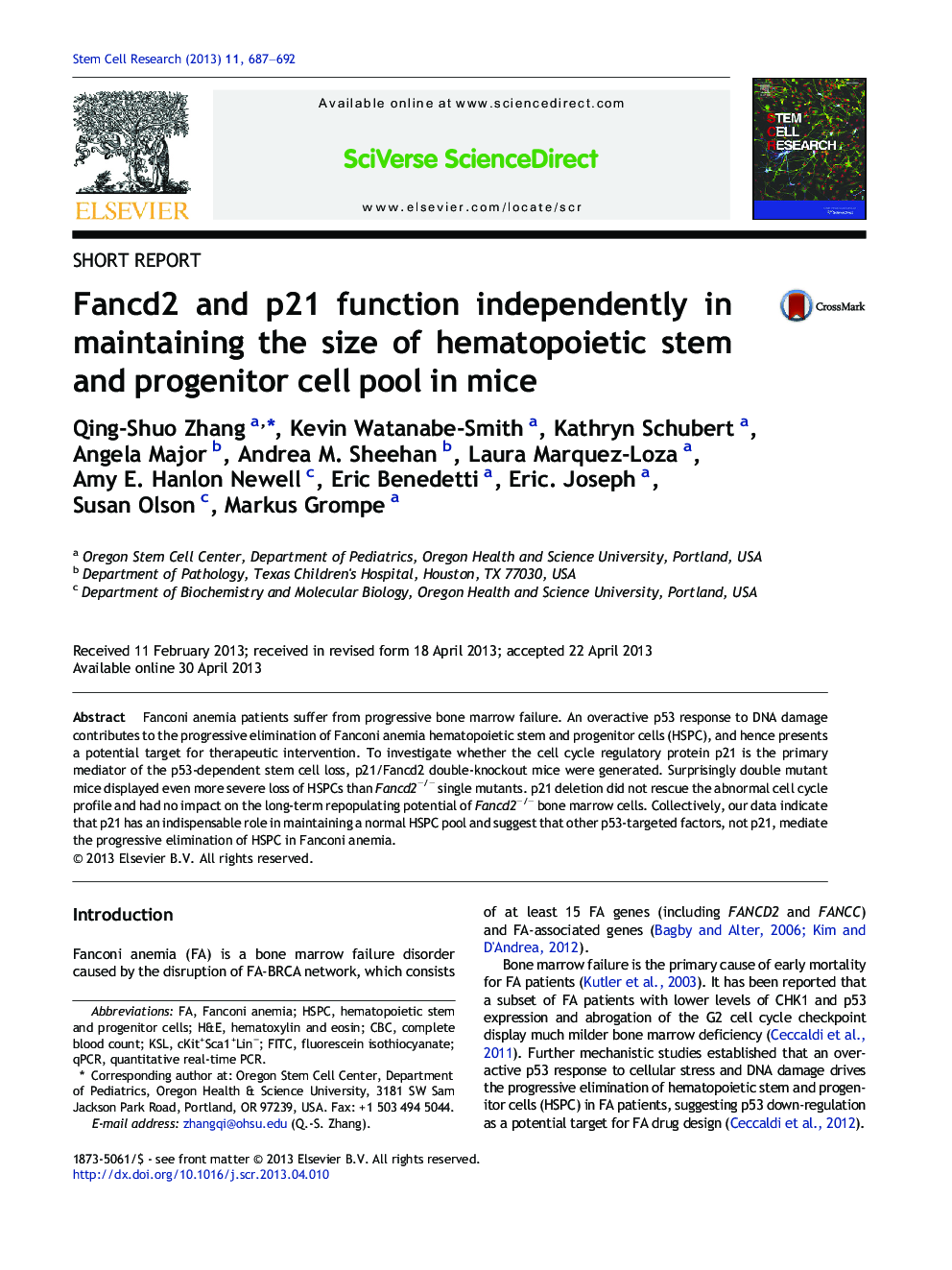| Article ID | Journal | Published Year | Pages | File Type |
|---|---|---|---|---|
| 10891424 | Stem Cell Research | 2013 | 6 Pages |
Abstract
Fanconi anemia patients suffer from progressive bone marrow failure. An overactive p53 response to DNA damage contributes to the progressive elimination of Fanconi anemia hematopoietic stem and progenitor cells (HSPC), and hence presents a potential target for therapeutic intervention. To investigate whether the cell cycle regulatory protein p21 is the primary mediator of the p53-dependent stem cell loss, p21/Fancd2 double-knockout mice were generated. Surprisingly double mutant mice displayed even more severe loss of HSPCs than Fancd2â/â single mutants. p21 deletion did not rescue the abnormal cell cycle profile and had no impact on the long-term repopulating potential of Fancd2â/â bone marrow cells. Collectively, our data indicate that p21 has an indispensable role in maintaining a normal HSPC pool and suggest that other p53-targeted factors, not p21, mediate the progressive elimination of HSPC in Fanconi anemia.
Keywords
Related Topics
Life Sciences
Biochemistry, Genetics and Molecular Biology
Biotechnology
Authors
Qing-Shuo Zhang, Kevin Watanabe-Smith, Kathryn Schubert, Angela Major, Andrea M. Sheehan, Laura Marquez-Loza, Amy E. Hanlon Newell, Eric Benedetti, Eric. Joseph, Susan Olson, Markus Grompe,
